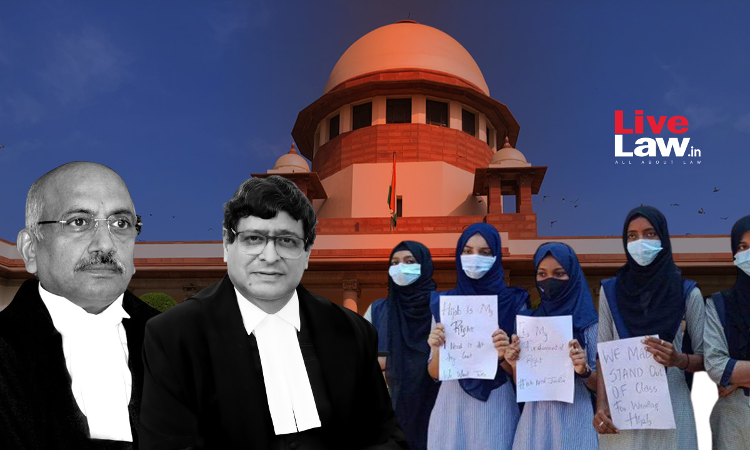BREAKING| Supreme Court Concludes Hearing In Hijab Case, Reserves Judgment
LIVELAW NEWS NETWORK
22 Sept 2022 1:11 PM IST

Next Story
22 Sept 2022 1:11 PM IST
After a marathon hearing over a period of 10 days, the Supreme Court today reserved its judgment on a batch of petitions challenging the Karnataka High Court's judgment which upheld the ban on wearing hijab by Muslim students in educational institutions.A bench comprising Justices Hemant Gupta and Sudhanshu Dhulia heard Solicitor General Tushar Mehta, Karnataka Advocate General Prabhuling...
